 Comics about mathematics, science, and the student life.
Comics about mathematics, science, and the student life.
Exhaustion
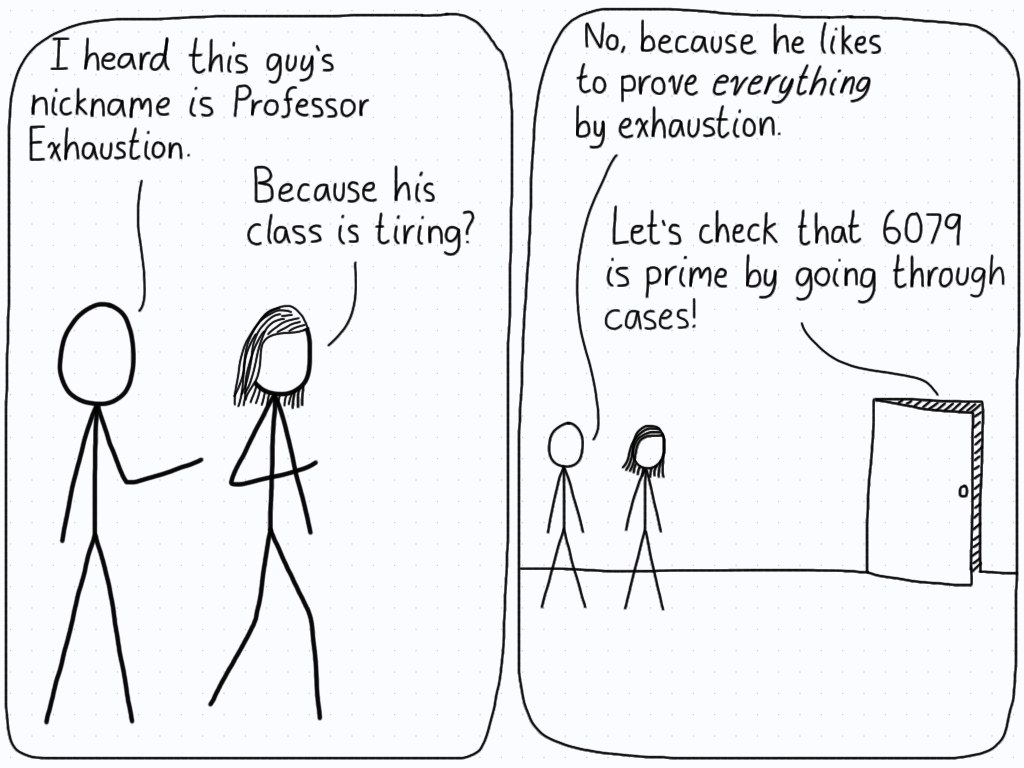
He also doesn’t believe in exhaustion, since you can’t check each case. Nor is he a fan of the continuum.
14 Feb 2020Proof By Previous Result

“To prove this statement, I invoke Theorem 3.2 of our textbook in conjunction with Corollary 67.1, which together implies our result trivially.”
12 Feb 2020Spin

The side job of a scientist is being a public advocate for science anyway. I guess we are close to politicians after all.
10 Feb 2020Reasonable Assumptions
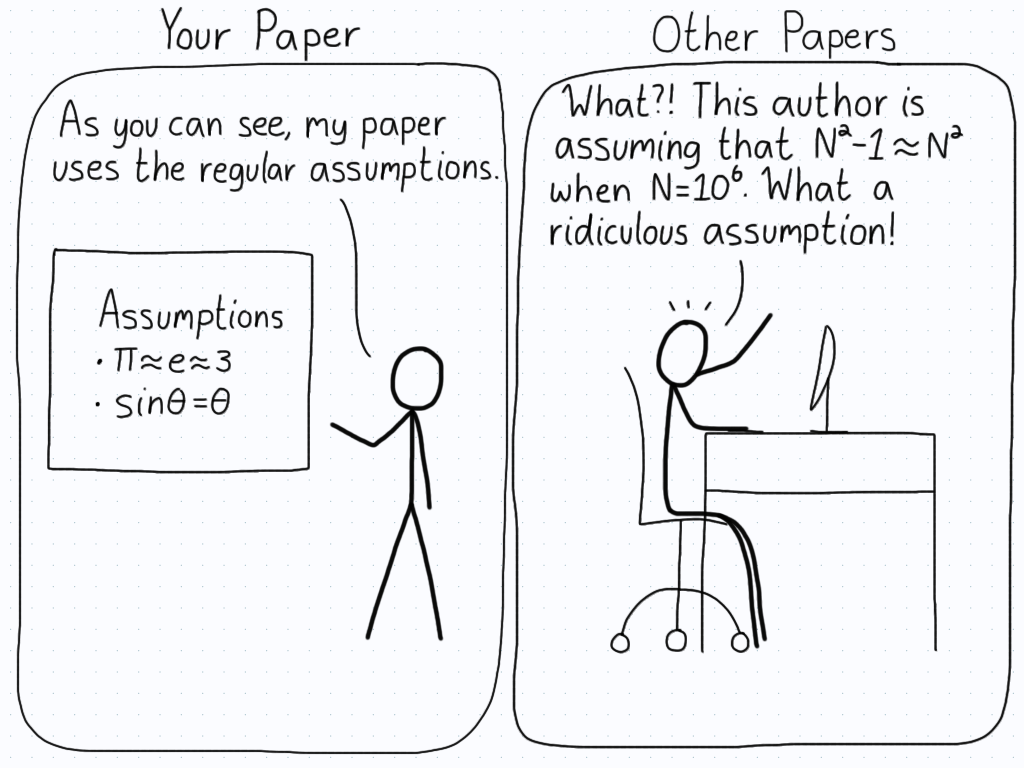
I just try to be unreasonable all the time. Much easier to be consistent.
07 Feb 2020Typographical Miss

As you might imagine, this is definitely based on a true story. I mean come on, the problem was identical to the previous, save one number.
05 Feb 2020Question Period
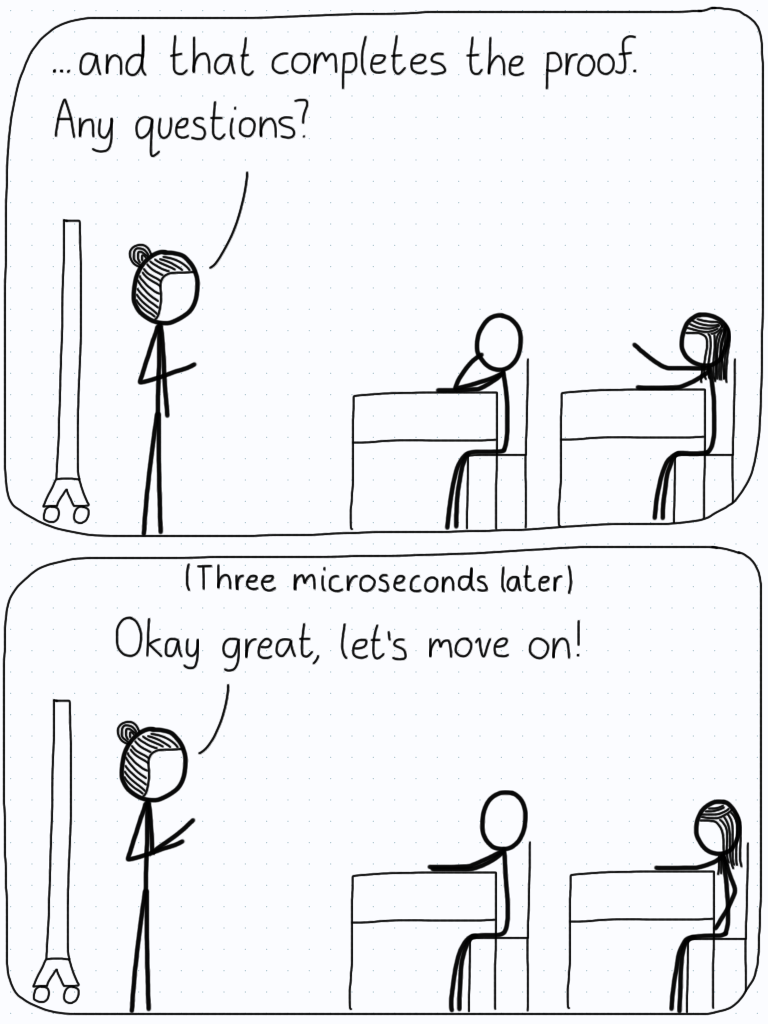
“You just told me I had to give the students a chance to ask questions, not that they actually needed to!”
03 Feb 2020Usual Approximations
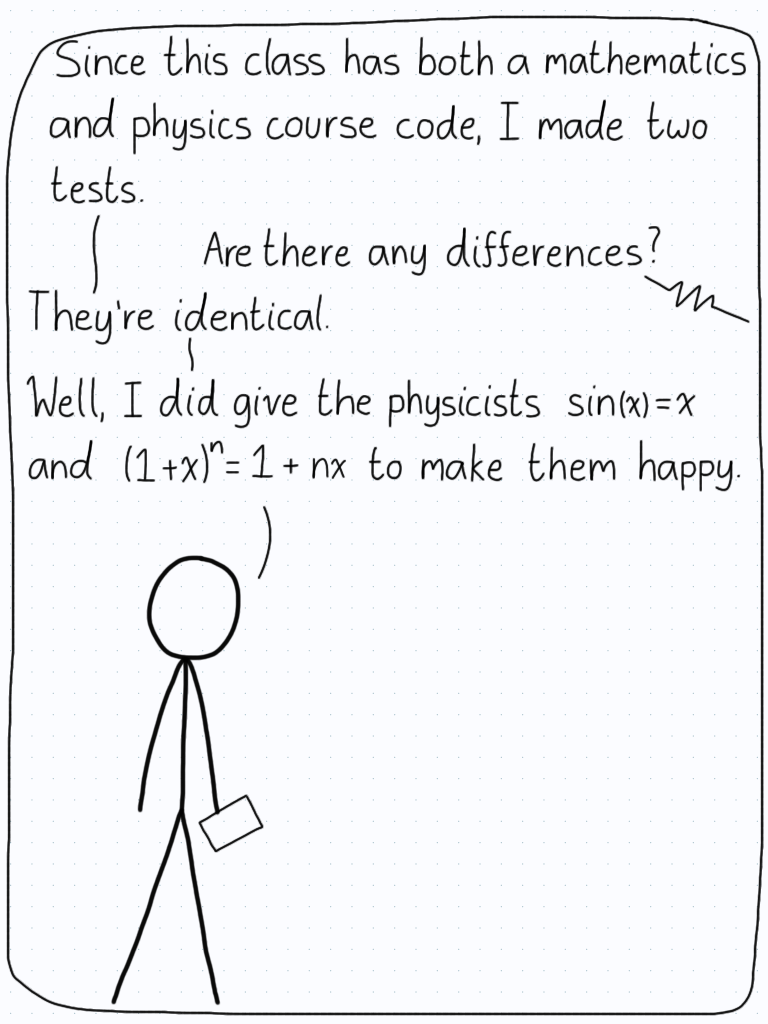
“Basically, I know you mathematicians enjoy solving the more general case, so I figured you would like the challenge!”
31 Jan 2020Data Generators
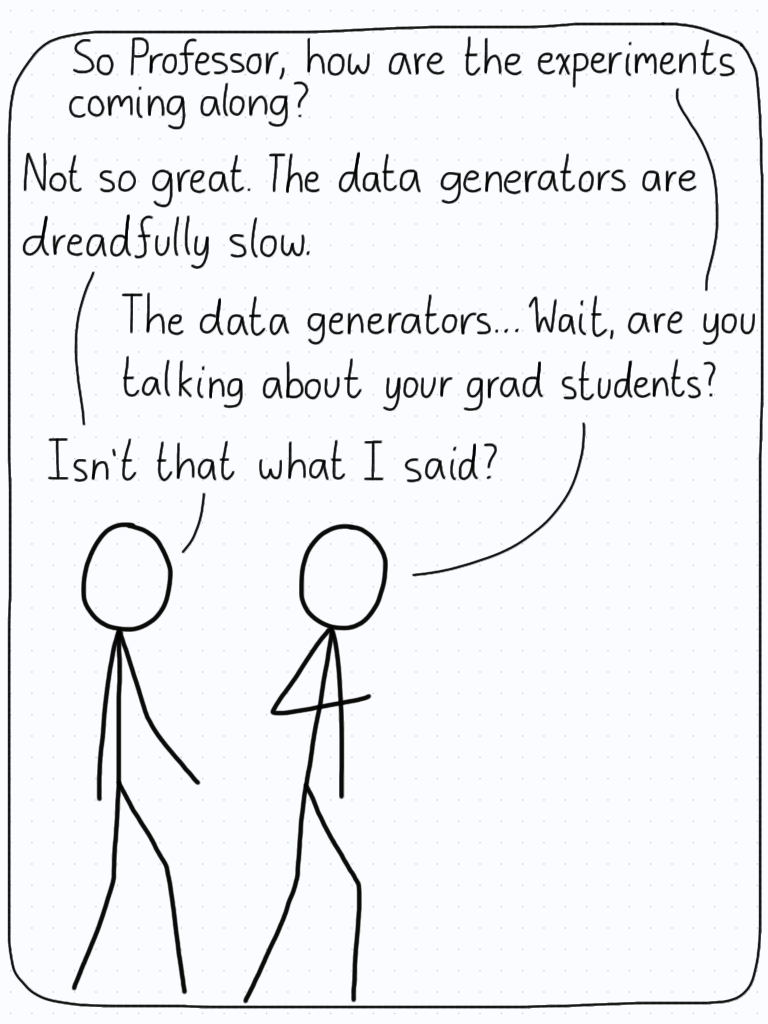
“I don’t think that’s the correct term to use-“
“Okay fine, the data farmers are slow. Happy now?”
29 Jan 2020
